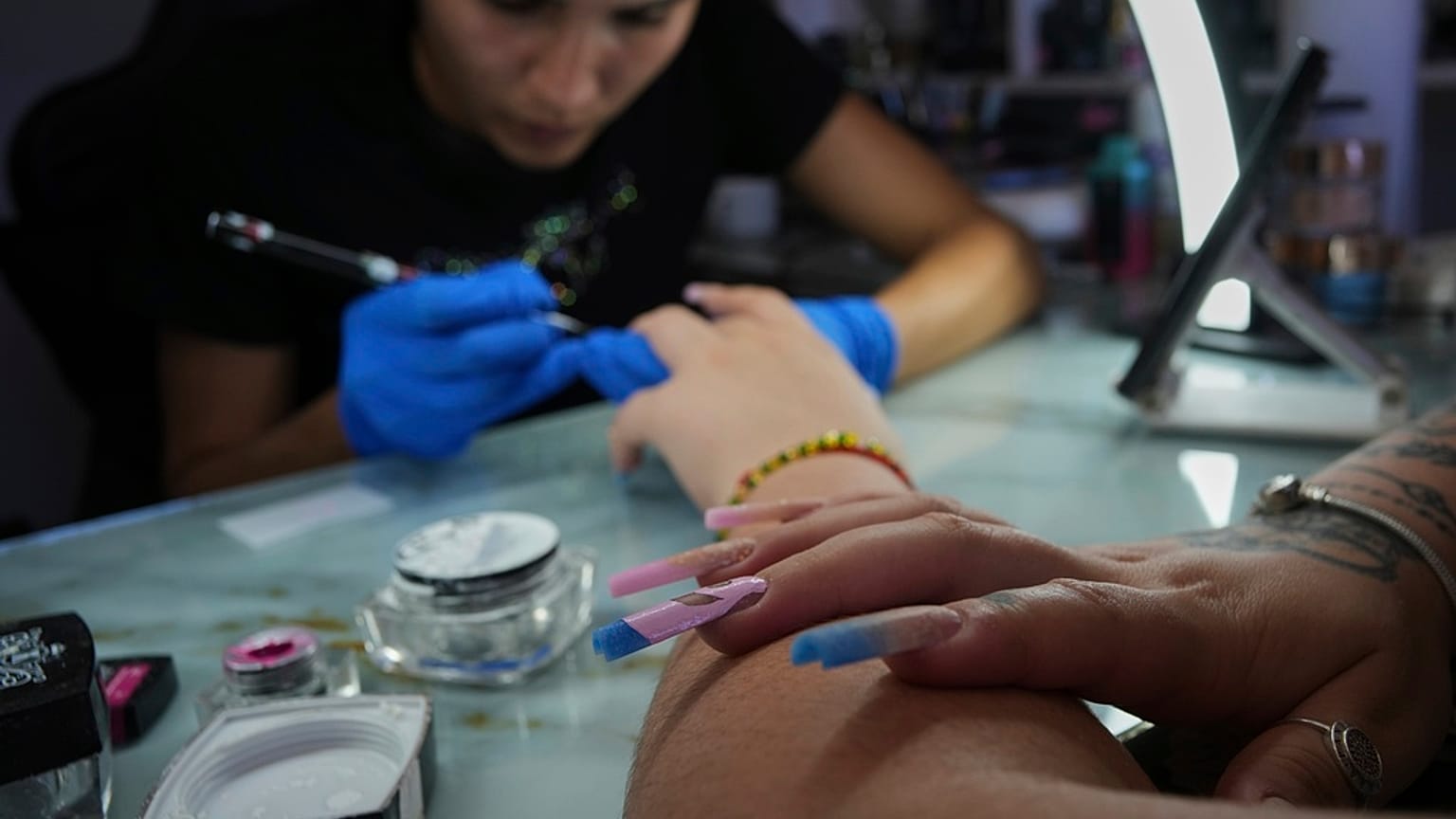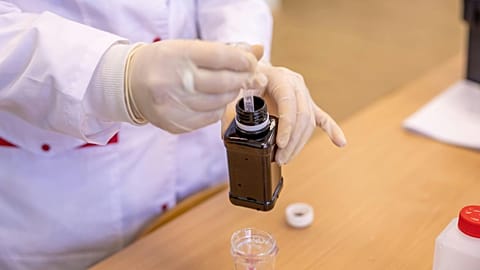The compound was banned in gel nail polished across the EU over concerns about its health effects.
A ban on semi-permanent nail polishes came into effect across the European Union earlier this month amid concerns over a key ingredient's health impact – but in Portugal, at least, it is still used in other sectors.
 ADVERTISEMENT
ADVERTISEMENT
 ADVERTISEMENT
ADVERTISEMENT
This substance, Trimethylbenzoyl Diphenylphosphine Oxide (TPO), is a photoinitiator that accelerates the drying and hardening of gel nails through UV light. The European Commission deemed it "carcinogenic, mutagenic, and toxic for reproduction," with the ban coming into force on 1 September.
The law has left the industry in disarray, with nail salons unsure how to safely dispose of existing stock and facing losses due to numerous now unusable varnishes. Manufacturers also had to rush to reformulate products without the controversial substance.
However, the ban might not be limited to cosmetic products, as this chemical compound is used in many applications to harden materials.
This includes dentistry. Photoinitiators such as TPO are used in certain dental products, such as resins and cements, to aid curing and achieve a stable, non-discolouring finish.
The Portuguese Dental Association (OMD) confirmed the use of this compound in dental procedures in Portugal, according to Rádio Renascença. These procedures include fissure sealing, tooth restoration, and even cosmetic treatments such as teeth whitening.
According to OMD, the amount of this substance "is minimal compared to what is used in cosmetics," although the percentage of TPO is not mentioned in dental products. It is also unknown if its presence in resins and cements poses a health risk.
Following the European Commission's ban on this chemical in cosmetics, dentists and orthodontic material companies now fear an extension of the regulation to their sector and a possible extension of the law to medical devices.
Infarmed told Renascença that it was unaware of the presence of this substance in the dental industry, noting only that "at this moment it is ensuring compliance with the European regulation, specifically the ban on the use of TPO in varnishes".
TPO is still permitted in other dental applications, food packaging, 3D printing, and even in the construction of prostheses.

















